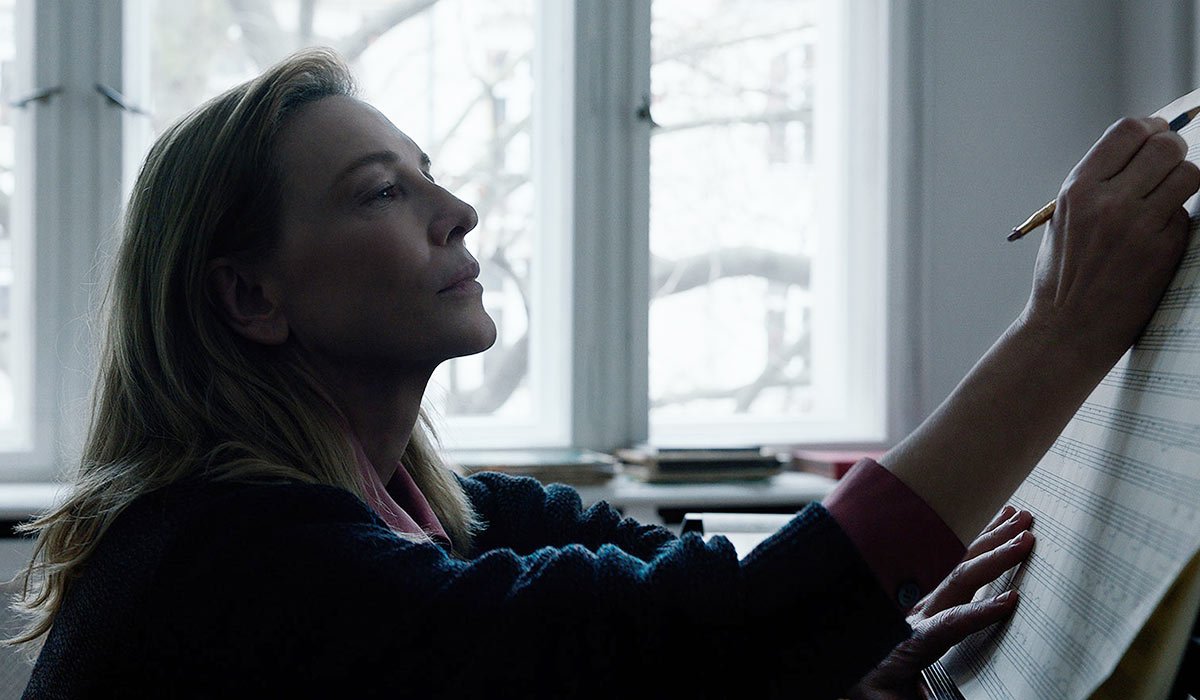TAR
Propulsive viewing that excites, enrages and intrigues, TAR is one of the best movies of all time - not least of which because of the towering, no holds barred performance from an absolutely magnetic Cate Blanchett.
Lydia Tar (Cate Blanchett) is widely considered one of the greatest living composer-conductors. She’s the first ever female music director of a major German orchestra, a worldwide virtuoso, composer for films, and is on the cusp of releasing her book - Tar on Tar. She’s also obsessed with legacy, and is finally tackling a piece she has never attempted before. Things start to unravel for Tar when one of her former scholarship students takes her own life, and her predatory behavior with those who work for her, and those who learn from her, begins to emerge. As she struggles to get to the heart of the piece she is presenting with the Orchestra, she also has to try and avoid the impending storm from the outing of her behavior, manage her relationship with her wife Sharon (Nina Hoss) and daughter, placate long-suffering assistant Francesca (Noemie Merlant) and deal with her temptation to groom young up and coming cellist Olga Metkina (Sophie Kauer).
Todd Field directs this absolute epic of a movie, and the value in the piece can be most evidently seen from the fact and feel of its runtime. TAR is nearly 2 hours and 45 minutes, yet never drags; never feels gratuitously long. That’s a testament to the incredible script-writing, direction and acting on display here, because it is so cohesively and engagingly written, so well paced on the screen, and delivered with so much energy, that those nearly 3 hours fly by.
After mammoth acting wins at festivals like Venice, and a metric tonne of Oscar buzz, it might seem trite to state the obvious about Blanchett’s performance, but it must be said; she has never been better. Blanchett dominates the film like few if any others could, and her absolutely indomitable performance is a joy to behold. She plays a very complex character, and treads the fine line between hero and villain with admirable aplomb. She presents a character that can be both dutiful, loving family woman, and irascible, uncontrollable and destructive cheater. There’s a duality to Blanchett’s performance that could never be matched by a lesser thesp, no matter how good the script is.
That level of performance is imperative, because Field and his cinematographer Florian Hoffmeister and composer Hildur Guonadottir spend a lot of this movie leaving space to be filled. Visually, the shots are frequently framed extremely wide, leaving massive amounts of space around Tar and her crew in any scene. It’s a testament to Blanchett’s performance that Tar never feels small in these scenes, dwarfed as she is by the setting and lens choice. Instead, her insatiable need for love, fame, glory and legacy swell to perforate every corner of these cavernous shots, drenching the screen in an Icarus-like sense of ambition, prime for fall.
Similarly, Guonadottir uses a bare bones score that focuses on live recording. Indeed, according to Blanchett at a Q&A after the screening we attended, Field wished to only use sound when it was present in the scene and recorded on the day. In this way, much of the movie is quite silent when compared with the standards of traditional cinema. Far from taking away from the film, the choice instead amplifies our understanding of Tar - we too feel the restlessness, the slightly disturbing nature of real life that catapults her to poor choices when she isn’t on stage, and the sheer wall of sound when the orchestra finally strikes that first chord hits the audience, as it does Tar, like a wave of relief.
From a story perspective, TAR is not only successful on an emotional level, but also on a sheer interest level. Field gives us an insight into a world many will not have an understanding of, and in doing so perfectly paces the film to dole out the relevant information, while continuing that feeling of momentum. His writing is so intense, you find yourself sucked into the film from the very start. The highlight is of course a long take scene where Lydia Tar teaches a group of students about the perils of viewing artistic work through the flaws of its creator, but there’s something to be said for the opening scene, which does a fantastic job of feeling and looking like a carefully presented scripted performance to showcase that Tar is concerned with her legacy, and presenting a carefully constructed face to the world. It’s a masterclass of exposition provision to an audience, masked in a compelling facade.
There’s undoubtedly much to be said of the film’s take on cancel culture, and whether Field is vindicating or vilifying those who have been seen as predatory in the last few years and had their careers destroyed because of it. Ultimately, however, TAR presents a bit of both sides of the argument. The main character is never truly innocent, but never truly awful either. We feel for her, and Field goes out of his way to show how certain elements of her life - the woke youth in her class - are arrayed against her to bring her down. But at the same time, he never shies away from the truly horrific outcomes her behavior towards prior students has had; the way her power and fame has given her such leverage over another life, and the unfairness of that. TAR is a nuanced, evocative take on cancel culture that justifies its extensive runtime, doing so much more with the topic than any Twitter thread ever could.
At nearly 3 hours, TAR is never going to be an easy, affable watch. However, it never feels long. It never feels gratuitous. Instead, the film is a testament to the power of incredible screenwriting, stunning vision, all matched by a performer at the top of their game. TAR is an unmissable cinematic spectacle. It’s worth the runtime.


